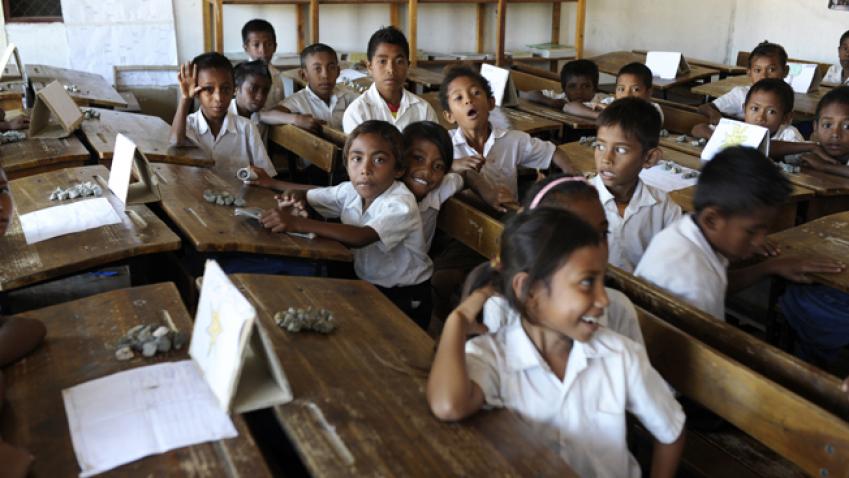Having access to water, sanitation and hygiene (WASH) facilities at school is the right of every child and adolescent. But in many schools around the world today, this service is often deemed inadequate. This results in preventable diseases among children, which negatively affects their well-being and ability to learn.
Ensuring adequate WASH in schools is critical for Sustainable Development Goals 4 (education) and 6 (clean water). It is also necessary for a good learning environment. However, there is still a gap between this necessity and the reality for many children around the globe. In order to bridge this gap, the Fit for School Programme (FIT) has been developed to support public schools in Cambodia, Indonesia, the Lao People's Democratic Republic and the Philippines.
The FIT approach supports the local Ministries of Education on national and subnational levels in developing standards and implementing guidelines for WASH in schools. Schools in the target countries incrementally improve access to clean water and sanitation by conducting regular hygiene interventions, constructing washing facilities, providing water, and establishing sustainable operation and maintenance processes. Kids can brush their teeth at school, and girls are provided with necessary menstrual products.
These improved facilities help prevent diseases such as diarrhea and acute respiratory diseases. After just one year, children in the Philippines were able to benefit from positive health effects: 20 per cent fewer underweight children, 30 per cent less absenteeism, 40 per cent less infections from decayed teeth and 50 per cent less heavy worm infections compared to schools employing traditional health education.
What are the inspiring breakthroughs and success stories that illustrate SDG implementation? What are the good practices that can be replicated and scaled up? What are the gaps and constraints and how should we address them? Looking ahead, what steps should we take to accelerate progress? To help answer these and other questions, UN DESA gathered more than 600 good SDG practices in a searchable online database. Be inspired by SDG solutions that work: https://sustainabledevelopment.un.org/partnerships/goodpractices
About UN DESA
UN DESA Products
UN DESA Divisions
- Office of Intergovernmental Support and Coordination for Sustainable Development
- Division for Sustainable Development Goals
- Population Division
- Division for Public Institutions and Digital Government
- Financing for Sustainable Development Office
- Division for Inclusive Social Development
- Statistics Division
- Economic Analysis and Policy Division
- United Nations Forum on Forests
- Capacity Development Programme Management Office

